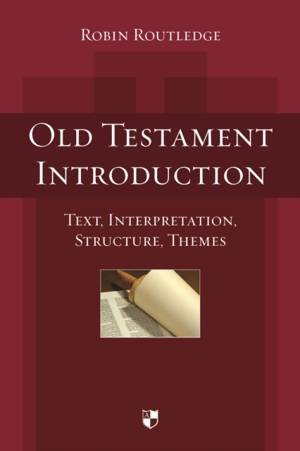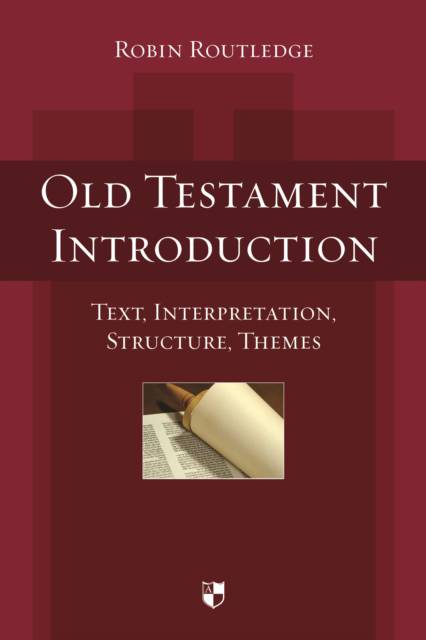
- Afhalen na 1 uur in een winkel met voorraad
- Gratis thuislevering in België vanaf € 30
- Ruim aanbod met 7 miljoen producten
- Afhalen na 1 uur in een winkel met voorraad
- Gratis thuislevering in België vanaf € 30
- Ruim aanbod met 7 miljoen producten
Old Testament Introduction
Text, Interpretation, Structure, Themes
Robin RoutledgeOmschrijving
The Old Testament is part of the canon of Christian Scripture and, as such, has continuing significance for the church. However, the writings are set within a different historical era, a different culture and a different religious context. To understand the Old Testament in a meaningful way, it must be read against its historical, cultural and theological background.
Here, Robin Routledge enables readers to engage with the text. He discusses:
- date, authorship, the writers' intention and purpose, and significant textual issues
- key scholarly approaches to the text, including historical-critical and literary approaches
To help us comprehend and interpret the Old Testament, and so apply it to current belief and praxis, Routledge includes an overview of exegetical and hermeneutical approaches. He also offers some guidance through the maze of new treatments and terminology.
The volume provides specific introductions to the sections and books of the Old Testament, following the canonical order of the Hebrew text. In addition, Routledge notes key distinctive issues and points to sources for further study.
The author's hope is that this volume will not only aid students but will also benefit others who want to take the Old Testament seriously, and to apply its message to the life and ministry of the church today.
'Scholarly and lucid, Old Testament Introduction is designed especially for those who want to understand how to read the Old Testament as Christian Scripture, while doing justice to its nuances and enormous diversity. I commend it warmly.'
Gordon McConville, Professor of Old Testament Theology, University of Gloucestershire
Specificaties
Betrokkenen
- Auteur(s):
- Uitgeverij:
Inhoud
- Aantal bladzijden:
- 448
- Taal:
- Engels
Eigenschappen
- Productcode (EAN):
- 9781783594290
- Verschijningsdatum:
- 21/07/2016
- Uitvoering:
- Hardcover
- Formaat:
- Genaaid
- Afmetingen:
- 155 mm x 236 mm
- Gewicht:
- 861 g

Alleen bij Standaard Boekhandel
Beoordelingen
We publiceren alleen reviews die voldoen aan de voorwaarden voor reviews. Bekijk onze voorwaarden voor reviews.











